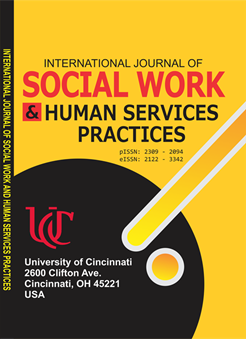INTERNATIONAL JOURNAL OF SOCIAL WORK AND HUMAN SERVICES PRACTICES (IJSWHSP)
COMPARATIVE ANALYSIS OF CHINESE AND ISLAMIC POLITICAL THOUGHT: A COMPREHENSIVE OVERVIEW
E-ISSN: 2122-3342
P-ISSN: 2309-2094
DOI: https://iigdpublishers.com/article/343
This article compares Chinese political philosophy and Islamic political thought, examining their historical roots, key principles, and contemporary relevance. Chinese political philosophy, primarily shaped by Confucianism, Daoism, and Legalism, emphasizes moral governance, social harmony, and the cultivation of virtue among rulers. In contrast, Islamic political thought, deeply rooted in the Quran, Hadith, and Sharia, focuses on justice, divine law, and the moral responsibility of rulers to ensure the well-being of the ummah (community). Despite their distinct cultural and historical origins, both traditions share concerns regarding the moral nature of leadership, the balance of authority and freedom, and the importance of justice in governance. It highlights the underexplored potential of Confucianism in shaping China's current political model and the challenges of integrating Sharia into contemporary state systems in the Muslim world. Additionally, it discusses how these philosophical traditions could contribute to global governance, offering alternative frameworks that challenge the
dominance of Western liberal democratic ideals. The article aims to foster a deeper understanding of their relevance in the modern political landscape by investigating the similarities and differences between these two intellectual traditions.
MD Salah Uddin
Al-Baladhuri. (1916). The Origins of the Islamic State: Being a translation of Kitab Futuh Al-Buldan (P. K. Hitti, Trans., p. 113). Columbia University Press. (Reprinted 2011).
Al-Farabi. (n.d.). The Virtuous City (p. 45). Oxford University Press.
Al-Farabi. (n.d.). Political Regime (p. 56). Oxford University Press.
Al-Mawardi. (1996). Al-Ahkam al-Sultaniyya: The Ordinances of Government (W. H. Wahba, Trans., pp. 84, 92). Ta-Ha Publishers Ltd. (Original work published 1058).
Ames, R., & Hall, D. (1987). Thinking through Confucius (p. 78). SUNY Press.
